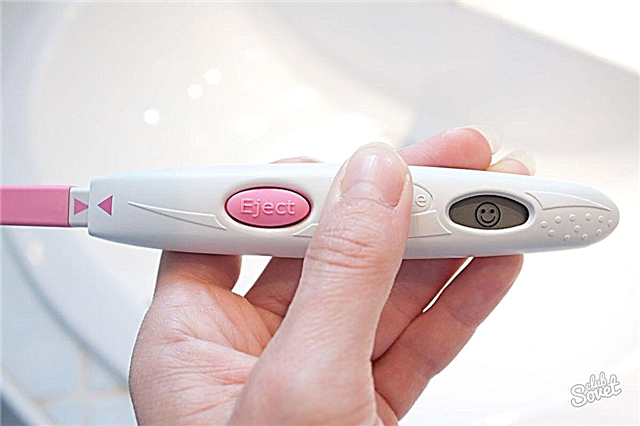
As soon as the cold weather sets in, Russians start buying antiviral drugs in pharmacies in the hope of using them to protect themselves from influenza and SARS. Many parents are engaged in child prophylaxis with special zeal - antiviral drops drip into the little one's nose, give pills with the same effect. And if a viral illness still affects the child, then they begin to give all the same antiviral drugs, but only in large quantities. Is it necessary to do this and whether such medications help protect the child from infection, says the famous children's doctor Yevgeny Komarovsky.

Antiviral agents
There are many medications for viruses. In pharmacology, they are divided into several groups:
- anti-influenza;
- antiherpetic;
- blockers of M2 channels;
- neuroaminidase inhibitors;
- extended-action drugs.
The action of some drugs is based on the activation of the immune defense of organisms, while other drugs directly "kill" viral particles. In the first group, funds are allocated that stimulate the production of interferon - a special protein that takes the most active part in the immune processes, and funds that "supply" this very interferon to the body, obtained from donor blood and already "familiar" with the virus thanks to gene laboratories engineers
Russia is one of the few countries where you can buy antiviral medicines in pharmacies without a doctor's prescription. In addition, on the territory of our state, the market for drugs for viruses is extremely wide. If in the USA there are only five drugs against influenza, then we have several dozen of them. Antiviral pills and syrups do not have such a wide advertising campaign like ours in any other country in the world.
The fact is that there are few funds with proven effectiveness in Russia. The overwhelming mass of the fact that advertising is positioned as "an effective way to protect against influenza and SARS" is nothing more than a marketing ploy that allows manufacturers to receive multi-billion dollar profits during the cold season.

Viral infections account for about 90% of all childhood diseases, says Yevgeny Komarovsky. And most children under the age of 7 get sick not once, not twice a year, but up to 10 times. Such diseases are especially dangerous for children who have not yet turned 3 years old. Even inexpensive drugs for viruses cost about 100 rubles per box. You don't need to be an academic to make simple calculations and understand how profitable it is for pharmacists and interested people in the Ministry of Health to advertise and sell children's antiviral drugs.

Efficiency
Many drugs designated by pharmacists as antivirals are indeed capable of destroying viral particles. But only in a laboratory, in a test tube. This ability is passed off by manufacturers as efficiency. And in a clinical setting, the test results are not so rosy. In most cases, drugs do not have the same "lethal" effect on the virus if the virus is in the human body, and not in a laboratory test tube.
However, manufacturers indicate that the drug has been tested. True, nowhere, even on the official website of this manufacturer, sufferers will not find a truthful report on the clinical trials.
Many drug manufacturers prefer to invest in advertising a new remedy for "flu and other dangerous viruses" than to order high-quality and correct testing of their drug on a large group of people. Not because, apparently, it’s very sorry for the money, but because they perfectly understand what the results of this test will be: none, zero or insufficient for a convincing conclusion, according to the requirements of evidence-based medicine. And I really don't want to write on the box "Effectiveness has not been proven".

Safety
The peculiarities of any virus are that it is not able to reproduce its own kind. Replication of the virus occurs only in the cells of the human body. Embedding in them, the virus with the help of its DNA changes it, makes it "work" for itself. To destroy the virus, you will need to destroy the cell infected by the "invader". And this, whatever one may say, does not pass without a trace for the body.
Thus, according to Komarovsky, there are few antiviral agents with proven efficacy that can affect cells infected with the agent, but they are. But they cannot be called harmless in any way.
Typically, these drugs are used in hospital settings, many of them require intravenous administration. These "serious" remedies have nothing to do with the bright boxes on the shelves of pharmacies, which the pharmacist assiduously offers to parents during the period of total morbidity.

For treatment
Antiviral drugs, as a rule, have a strictly limited spectrum of action. A specific agent acts on a strictly specific type of virus, and not on any other. Among the funds with proven effectiveness, which are classified as "serious" and, by the way, completely unadvertised, include the following drugs:
- Against the influenza virus - Ribavirin, Oseltamivir.
- Against the herpes virus - "Acyclovir"
- Against retrovirus - Adefovir, Indinavir.
There is no universal antiviral drug that would act on viral infections at all.
All other medicines, including homeopathic ones, help no longer the sick child, but his worried mother. She gives pills, and is calm for doing everything possible for her child. Doctors know this, and therefore willingly prescribe drugs such as "Anaferon", "Otsillokotsinum", "Viferon" for signs of SARS or flu.
These drugs cannot harm the child, there is no particular benefit from them either.
The viral ailment will go away on its own in 4-5 days, by this time the immunity will completely cope with the foreign "invader". The same 4-5 days are indicated in the instructions for the tablets and the manufacturers of the alleged "antiviral" drugs.
After all, after the child has recovered, no one would even think to figure out what exactly cured him - pills or his own immunity. The situation is completely win-win for pharmacists.
For prevention
There is no point in using antiviral drugs for prevention, says Yevgeny Komarovsky. They do not in any way affect the possibility of contracting the virus.
Most often, children "catch" the infection by airborne droplets - in children's groups, in public transport, in stores. The more other people around the child, the higher the likelihood of contracting ARVI. And none of the pills and syrups that mom regularly gives the child every morning can change this.
The same is true for viruses that are transmitted by contact - herpes, for example. Prevention, as such, in relation to herpes infections does not exist at all, and medication in particular.

Viruses that enter a child's body through the mouth, with water, are unlikely to lose activity if the child regularly drinks antiviral syrup.
Anyone can get infected, it can happen at any time. But one child, with stronger immunity, will get sick quickly, while the other will suffer longer, and after a couple of months, or even earlier, he will get sick again. The way out is to strengthen the immune system. But not with pills, but by creating the right conditions for the development and growth of the baby.
The best way to prevent viral infections is vaccination. When the immune system encounters a weakened virus that is contained in the vaccine, antibodies are produced against this virus, and if the disease begins, recovery will be faster, since the immune defense will quickly recognize the enemy and neutralize him.

Interferons
Today the word "interferon" is known to all parents, and, thanks to the commercials, they believe that it will surely cure the child of the flu. Yevgeny Komarovsky says that interferon itself - a specific protein - is not capable of affecting the virus in any way. His task is to activate other cells involved in the immune response to the fight, and he acts as a commander in this process.
That is why small doses of interferon, which are contained in nasal drops, in tablets, do not oblige the body to anything, and large doses are contained in drugs that are used only when a person's life is threatened by a serious illness - a tumor, complicated hepatitis, AIDS. Such injections are given in the hospital, often in intensive care. Interferon in such quantities is very poorly tolerated by patients, but it performs its function.

Everything that pharmacies offer for the treatment of children at home based on interferon are drugs with unproven efficacy. To drip them or not - it's up to the parents to decide. For your own comfort, you can drip it, there will be no harm, but you can also not count on special benefits.
Homeopathic remedies
With these funds, things are even more complicated. Homeopathy is not categorically recognized by mainstream medicine as it does not follow the principles of evidence. Komarovsky believes that the action of such drugs is based on the so-called "placebo effect".

For more information on antiviral drugs, see Dr. Komarovsky's program.
Doctor Komarovsky's advice
The most effective measures for treating viral infections are regular walks in the fresh air, away from crowds, in the park, moisturizing the mucous membranes of the nose, drinking plenty of fluids and a minimum of medication. At elevated temperatures - bed rest. It is important that the room of a sick child is not hot - no higher than 18-19 degrees Celsius. The relative humidity should be maintained at 50-70%.
The best means of prevention is to refrain from visiting places of mass stay of people during the period of an increase in the incidence of ARVI. It is also important to observe the correct microclimate (described above), and give the child the permitted vitamins. Particular attention should be paid to the prevention of children aged 2 years and older who have already begun to attend kindergarten. Get flu shots on time.
For more information on antiviral drugs, see Dr. Komarovsky's program.



